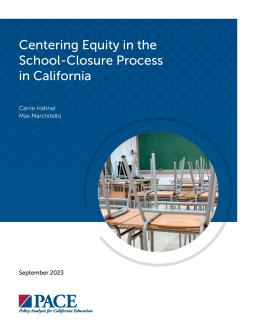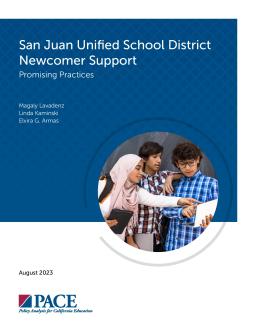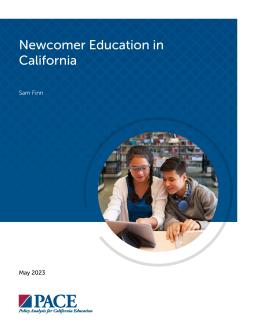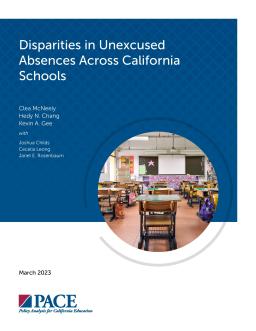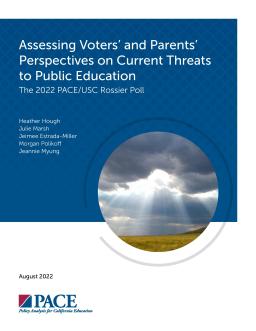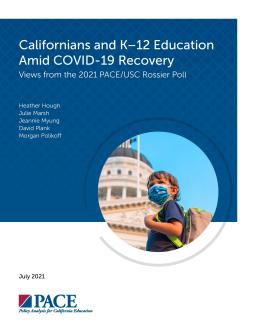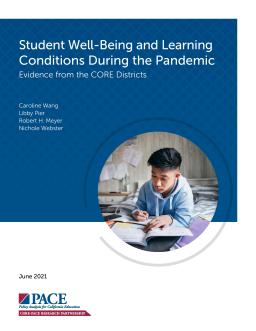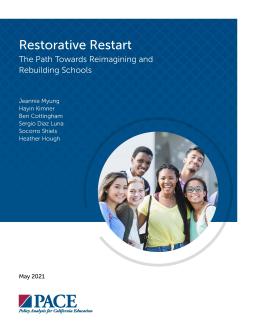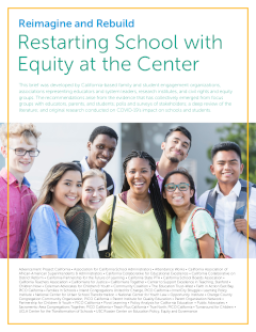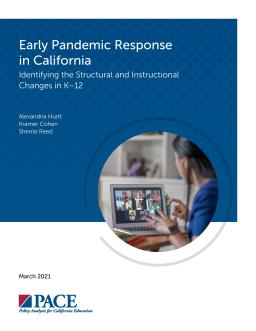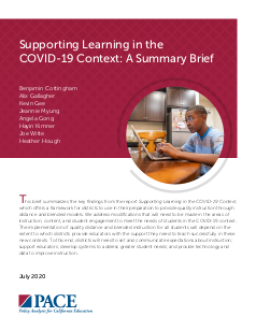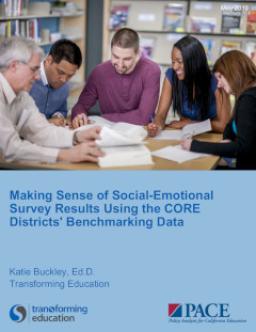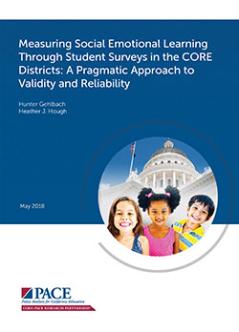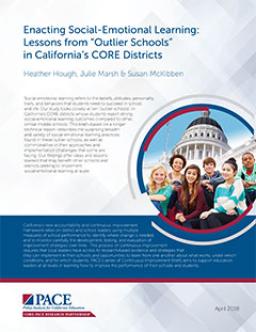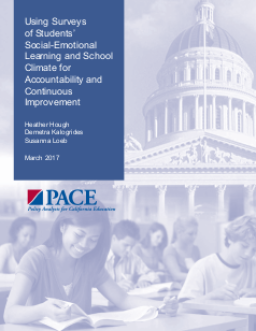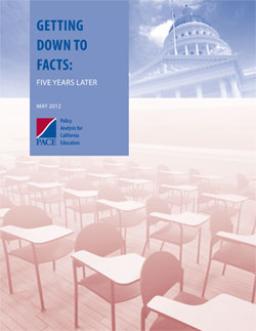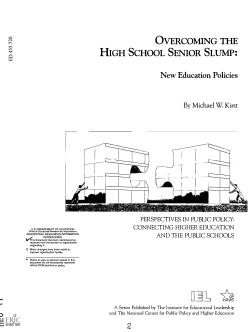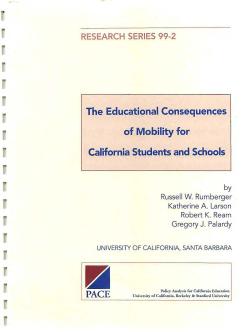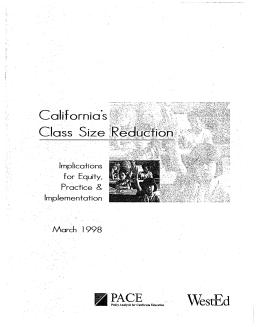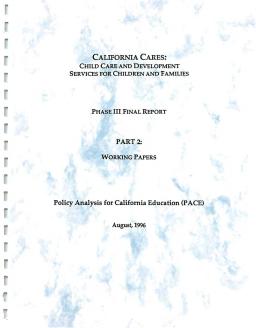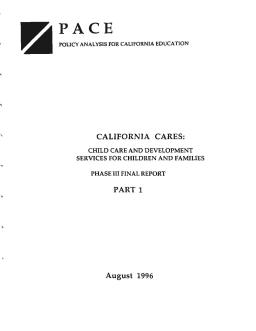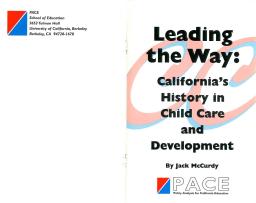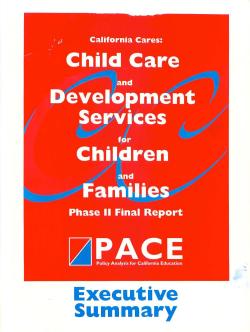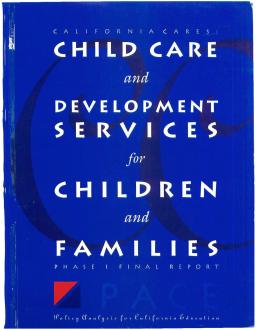Summary
Summary
Summary
Summary
Summary
The 2021-22 academic year in California was challenging for public education due to eight issues that threaten student learning, schools, and public education itself, including gun violence, declining enrollment, and long-term funding inadequacy. These issues also have a disproportionate impact on marginalized communities and highlight long-standing systemic inequities. In July 2022, PACE and USC Rossier School of Education conducted a poll of California voters to determine their views and priorities on public education.
Summary
Summary
Summary
The COVID-19 pandemic has affected all students; however, its impact has been particularly devastating for students of color, students from low-income families, English learners, and other marginalized children and youth. As transmission rates decline and vaccination rates increase in California, many are eager to return to normalcy, but we must all recognize that even the prepandemic normal was not working for all students. The 2021–22 school year, therefore, constitutes a critical opportunity for schools to offer students, families, and educators a restorative restart.
Summary
This brief was developed by California-based family and student engagement organizations, associations representing educators and system leaders, research institutes, and civil rights and equity groups. The recommendations arise from the evidence that has collectively emerged from focus groups with educators, parents, and students; polls and surveys of stakeholders; a deep review of the literature; and original research conducted on COVID-19’s impact on schools and students.
Summary
Summary
This suite of publications provides 10 recommendations based on the PACE report to help educators and district leaders provide high-quality instruction through distance and blended learning models in the 2020-21 school year. Despite the challenges of COVID-19, research can guide decisions about student learning and engagement. These recommendations can be used as a framework to prioritize quality instruction.
Summary
This report presents benchmarking data on self-report student surveys measuring social-emotional learning (SEL) from nearly half a million students in grades 4 through 12 across 8 CORE districts in California. The data provide means and standard deviations by construct, grade level, and subgroup, and can serve as a proxy for a nationally-normed sample for other schools across the country looking to administer the CORE survey.
Summary
Summary
Summary
This study explores ten "outlier schools" in California's CORE districts that have strong social-emotional learning outcomes. The brief and infographic summarize the various practices found in these schools and the common implementation challenges faced. The findings offer lessons that can help other schools and districts implement social-emotional learning at scale.
Summary
The use of social-emotional learning (SEL) and school culture/climate (CC) measures is a promising way to understand school performance. SEL and CC measures are reliable, distinguish between schools, and relate to academic and non-academic measures. They can identify areas for improvement within schools, such as subgroup gaps. Incorporating these measures into higher stakes accountability systems requires further research.
Summary
This report commemorates the fifth anniversary of the Getting Down to Facts project, which sought to provide a thorough and reliable analysis of the critical challenges facing California’s education system as the necessary basis for an informed discussion of policy changes aimed at improving the performance of California schools and students. The report focuses on the four key issues that received emphasis in the Getting Down to Facts studies: governance, finance, personnel, and data systems.
Summary
Summary
Summary
Summary
Summary
Phase III of the California Cares report aimed to redesign childcare and development policy, with input from the community and representatives from three agencies. Work groups and traditional research projects were conducted to study nine questions deemed critical to policy restructuring. Part II of the report includes working papers for all tasks except state governance, which is included in Phase III.
